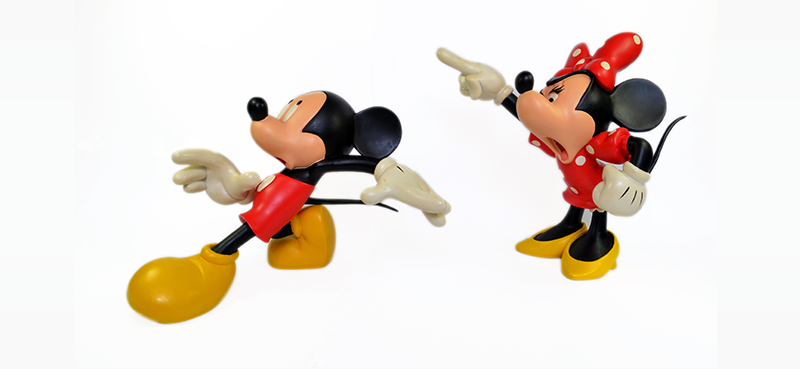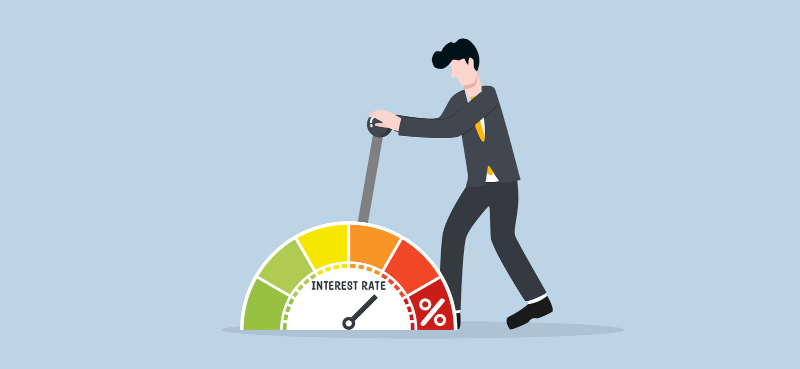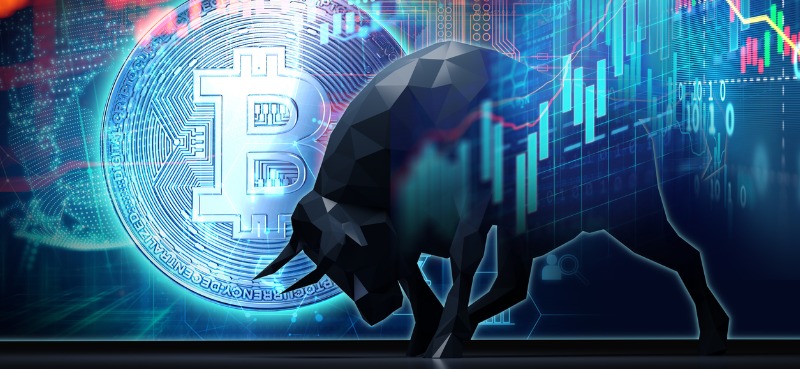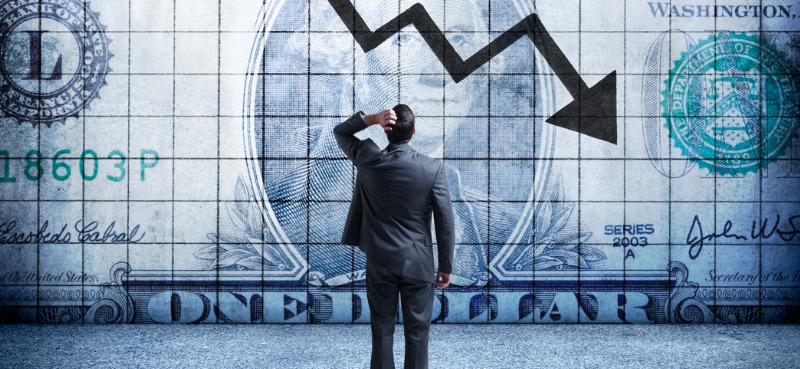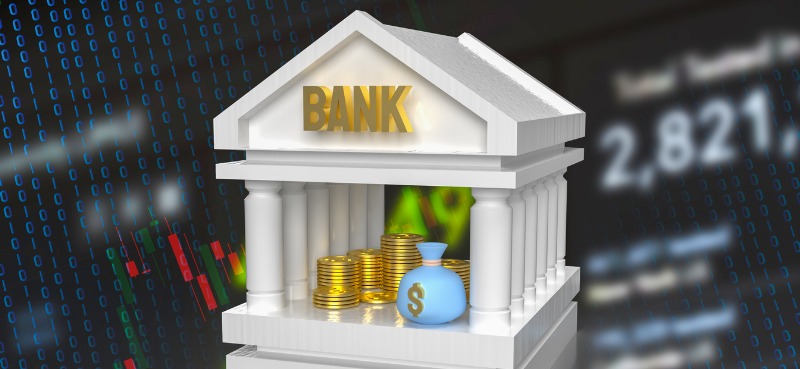Prepare for a couple of rants on today’s podcast…
First, Cathie Wood has lost some of my respect following a comment about Blockchain.com’s valuation. I explain why private vs. public valuation is a silly comparison… And how initial public offerings (IPOs) have changed for the worse…
Next, I highlight the ridiculous (and shady) ways capital is being raised in private markets, including the crypto space… How some billionaire investors like Chamath Palihapitiya screw over individual investors… And how to fight back against a rigged system.
But, while the crypto space has its share of issues, it’s the best risk/reward sector today.
- Cathie Wood’s cheap shot at Blockchain.com [1:45]
- Why the Blockchain.com valuation isn’t absurd [4:40]
- The tainted IPO process [6:55]
- MoonPay raises millions from celebrities [10:20]
- Are these capital-raising strategies ethical? [15:45]
- How to avoid getting burned in crypto—and make a killing instead [19:30]
- Why we need more transparency from insiders [22:35]
Wall Street Unplugged | 881
How to fight back against a rigged financial system
Announcer: Wall Street Unplugged looks beyond the regular headlines heard on mainstream financial media to bring you unscripted interviews and breaking commentary direct from Wall Street right to you on main street.
Frank Curzio: What’s going on out there? It’s Thursday, April 14th. I’m Frank Curzio, host of the Wall Street Unplugged podcast, where I break down the headlines and tell you what’s really moving these markets. Bringing the best analyst in the world back on today’s podcast. Good looking, great golfer, I don’t know what else I could say. Daniel Creech, what’s going on, buddy?
Daniel Creech: That’s inaccurate, but I will take it. Thank you.
Frank Curzio: Just take it.
Daniel Creech: The ultimate fill in interview spot here, performing my role flawlessly. Thank you.
Frank Curzio: Well, you know what it is, when people say really good things about you and other people are saying it, just go with it. Cool. Don’t even, that’s, “Hey, they said it. I didn’t say it.” Right?
Daniel Creech: I took a couple of-
Frank Curzio: It also sounds more powerful.
Daniel Creech: I’ve taken a few lessons in the golf game to help with some roundabout pointers and things like that. Now I’m thinking too much, and I am hacking with a capital H.
Frank Curzio: I don’t know why, you know what, when I was playing with you, and I haven’t played with you in a little bit, because I’ve been so freaking crazy. I know you’ve been playing a lot, but man, you were on fire. You were playing great.
Daniel Creech: I was. I was in the high seventies a lot, and that, Frank, that ship has sailed, my friend.
Frank Curzio: Welcome to golf.
Daniel Creech: I know, I know. I’m in a rut. It’s like, hey, I’m getting beat up. I’m like a hedge fund manager, I’m getting beat up right out. But listen, I’m turning the… Here’s a segue, sometimes positions are down 40-50% and you get called out.
Frank Curzio: Yeah, no, seriously. I hear you. I hear you, man. So look, a lot going on in the news. And this is going to be a little bit of a crazy podcast, because you’re going to hear me, a few rants, at least on my end.
Frank Curzio: First thing I want to start with is some of the news within crypto, where we have Blockchain and Cathie Woods. So Blockchain.com and Ark Invest, and Cathie Wood, CEO of Ark Invest, she really took a swipe at Blockchain.com. She spoke about valuation between the public and the private markets, doesn’t make sense. She said it makes no sense, the valuation of Blockchain.com, again their private, which is a private company, rose threefold in the last year, while that of rival Coinbase, which is publicly listed has fallen sharply.
Frank Curzio: And her saying this makes no sense. And I’m a fan of Cathie Wood. But when I hear her say something like this, I have to tell you, I took a step back, in terms of the respect factor, where it was a 10 and now it’s about a seven, because for her not to understand what’s going on with these two companies are very surprising.
Frank Curzio: But what I did like is, she called out, she was talking about the management team and stuff like that. And they don’t have as good a management team or good business model. And Blockchain.com, their co-founder, Nicolas Cary, basically heard this and came back. And this was a CM interview with Cathie Wood. But he said, the fact that it makes no sense is absolutely crazy. And he got really pissed off with that, but he came out and he said, “Look, it’s all about valuation. And you’re down 50% of your position, and we’re up 3X on our position. So, I think it speaks for itself,” which I think is funny.
Frank Curzio: But I don’t know why she took a swipe at management and she went after them. For me, I have a big opinion. I want to hear what you thought of this, because she’s complaining about the private and the public markets and saying how they’re different, which she should know about, and the valuations. And I don’t know where she’s going with this. I don’t know if you knew, but we’ll start with you, Daniel. What’d you think about this?
Daniel Creech: In short, I have no idea where she’s going with this, like many things on her end. She’s very smart. I’m not taking anything away from her. Some people were just more comfortable in the growth aspect. You and I have talked about that in the past. She’s obviously had a lot of success during the COVID lockdowns. Some of that, or a lot of that has kind of reversed lately.
Daniel Creech: The public private, you’ve done a great job explaining this. This is one reason why a lot of companies want to go public for different reasons, but there’s different valuations completely. Public markets trade at much higher valuations than private, for one very simple reason of the fact that you only have so many and you have tons of money flowing into the space. Therefore, a rising tide lifts all boats.
Daniel Creech: Without playing a psychiatrist here, Frank, obviously she’s having a rough year. I think her flagship Ark Fund was down 20-25% last year. I believe it’s down 30-40% to start this year as the market’s pulled back with the high growth tech stocks selling off, which she’s invested in.
Daniel Creech: Maybe it’s a little bit of like, I wish the rules were similar, I wish we were in the private markets. but with her connections and her assets, I don’t know why she couldn’t participate in seed rounding and also invest in private funds to take advantage, or private markets, excuse me, to take advantage of these. As the Blockchain.com guy said, hey, we’re up 3X amid a war, market crash, all kinds of stuff. So yeah, it’s pretty incredible.
Frank Curzio: The problem is, I’m a numbers guy, I look valuations. And you look at blockchain.com, it’s one of the oldest Blockchain companies. And when we say old, 2011 is really old, nobody’s talking Blockchain, very, very few people in 2011.
Frank Curzio: As 37 million, and they call it verified users globally, 37 million, with a 14 billion valuation, which is capital rates they just did. Just did recent, last month, 14 billion valuation is still a private company. When you look at Coinbase, so Coinbase is trading at a 34 billion valuation and they have roughly 40% more users. So, 90 million.
Frank Curzio: They have 90 million to verify users. Three times that amount. They’re trading out a 34 billion valuation. So if you just take valuation to valuation, and again, it’s not apples to apples. We’re using the same metric, but still Coinbase could offer a lot more stuff, and they are publicly traded.
Frank Curzio: But if you look at the valuation right now, you would look at, based on verified users, and including that 40% difference, Blockchain, based on verified users, they had 90 million, would be trading at a 22 billion valuation. And Coinbase is trading at a 34 billion valuation today, which seems like a premium. Right? Which you deserve a premium because you’re a publicly traded company.
Frank Curzio: And when I look at her cost basis though, okay, because we’re looking at this stock trading at $150, Cathie Wood got in this really early. And I think people forgot that when Coinbase went public, you’re looking at a stock that went from, I believe it was like $260-$270 and it went to $425 right away. Her cost basis is a lot, lot higher. It’s around $270. It’s $150 today.
Daniel Creech: Cool.
Frank Curzio: So, that was at a 70 billion dollar valuation, about. And I’m guessing, I’m saying that’s like her lowest cost base. I’m not sure with every single buy, but that’s why she was buying the most. And I knew she had a massive position back then at $270. And she probably accumulated a little bit more than that. But around $270 is her cost.
Frank Curzio: So, you’re looking at a 60-70 billion dollar valuation when you decided to accumulate some of this. And you’re complaining about the private markets, but there’s a huge boost in private and the public markets. I remember going public for… The reason to go public, this is back in the day, you wanted to go public because you wanted to raise money, increase liquidity, and be able to use that money to grow your company. Right?
Frank Curzio: And that was the goal. That was worth going public, that was worth spending millions, and millions, and millions of dollars on lawyers, and accounting, reporting every single quarter, which you have to do a small amount of people, but the regulations are through the roof. Everything, it’s crazy, right? Public, and you could have shareholders.
Frank Curzio: Look what happened to some companies now, when you get big shareholders and they could take over your… All this shit, you open up that door when you’re public. So, why would you do that? Because I want to raise a shitload of money. This way I can grow much, much faster and maybe open up, we have a hundred restaurants, we open up a thousand over the next three, four years. Okay, that’s why you do it.
Frank Curzio: Today, companies go public for everyone to get the fuck out. That’s why you go public. Because all the insiders, just to get the fuck out. That’s why people go public. So, when she’s looking at Coinbase, and she’s comparing the numbers, first of all, I think it’s a joke. She’s comparing those numbers, and you don’t compare to blockchain.com where they’re a private company. Why did they grow 3X? They deserve to grow 3X.
Frank Curzio: If they didn’t grow 3X, your Coinbase position, instead of $150, it should be at $180. So, just using that comparison, but for her not to look at the numbers and understand that, I’m very surprised. And for her to think that… I understand the growth markets. I learned that incredibly, and I thank Jim Kramer for that. Because I was a value investor before, working with him closely for five straight years. And we still have a relationship today.
Frank Curzio: Understanding growth, growth works when your economy is growing. You need that. You need that component. We’re seeing it right now. When you have perfect conditions of very little inflation, money flight in the markets, it results in growth going so…
Frank Curzio: So, you deserve that premium, of 25, 30, 40 times, which is much more than sometimes 2X, 3X, what the average S&P 500 company’s trading. But now you have different mark conditions, and I don’t think she understands that. And I’m not too sure of her age, or if she’s lived through other periods, but when you have these periods where you’re seeing slower growth, the Feds aggressively raising rates, you’re seeing inflation go through the roof. And that was in the 80s, and that was a while ago.
Frank Curzio: But it’s a different conditions. You can’t use the same metrics that you were using a year ago, to 6, 7, 8 years ago for growth, as you are now. It’s a different market environment. You have to pay attention to the macro. You have to. That’s top down. A lot of people say, “Bottoms up…”
Frank Curzio: And this is why you pay attention to top down. Because you could be growing the same, you’re growing fast, but you’re not going to get that premium. And that multiple’s going to come down. So, for her to say this and rip Blockchain, I’m glad the Blockchain CEO came out. Again, I’m a Cathie Wood fan, but why you’re calling out the management for? “Well Coinbase has a much better management.”
Frank Curzio: You’re insulting him. Why would you… You don’t have to go that far. You could just say, “Listen, based on what blockchain.com is, we should be trading here.” But even if you look at the numbers, it’s not true. You shouldn’t be really trading there. If you’re looking at the numbers, you have 90 million users for Coinbase, 34 billion valuation. They have 37 million, they train at 14 billion.
Frank Curzio: You could argue, if blockchain.com had a private market had the same amount of users, it would be training about a 22 billion dollar valuation, which is… I just don’t understand the numbers, looking at the math, or understand it when I take a step back, and just that opinion. Like, you don’t compare a private company to a publicly traded company, and valuation wise, and why this is happening.
Frank Curzio: It’s crazy, because you’re getting funded on the private market, because so many people are getting in early, and then they’re able to get out. So it’s easy to raise money these days. And that’s the market game. It’s getting to the point, why the fuck is anybody buying any stock on the market right now? It’s a joke. And that brings us to the next story, which is MoonPay. have you followed this, the MoonPay?
Daniel Creech: I like this, rant number one is over, now on to rant number two.
Frank Curzio: Oh I’m fucking just getting started.
Daniel Creech: Frank, we got to say Florida. Not that word.
Frank Curzio: No, I don’t care. Today, listen, if your kids are listening, don’t listen. It’s okay. Sorry. Most of the time, I behave. Today is my full feelings and you’re going to hear it.
Frank Curzio: But MoonPay, right? So, we have MoonPay, which a really cool company that allows users to buy and sell crypto currencies using conventional payment methods like credit cards, bank transfers, and mobile wallets, such as Apple Pay and Google Pay. It’s pretty cool technology. It’s not revolutionary. Lots of companies do this.
Frank Curzio: Nevertheless, MoonPay is being valued at $3.4 billion after its latest capital raise. Why? Well that capital raise included $87 million combined funding from 60 celebrities. 60 celebrities, that includes Justin Bieber, Gwyneth Paltrow, Snoop Dog, Ashton Kutcher. You guys know the names on this list. Chain Smokers, Drake, Eva Longoria, Jason Derulo, who puts his name in every single song he sings, Kate Hudson, Paris, Hilton, Matthew McConaughey, Shawn Mendes. Just huge, huge, huge and influential names.
Frank Curzio: So Dan, I’m going to ask you, how do you think this is going to play out?
Daniel Creech: Similar to Coinbase’s IPO. It’ll rally. If that’s their plan, and I’m assuming so, they’re going to go public at some other time, and investors will cash out. Yeah.
Frank Curzio: They’re raising this money, pre-round. This is called pre round. They do series A, B, C, D, E, F. Early funding rounds and A, B, C, D they go up, whatever. G, H, I, whatever, you know the alphabet you keep going and going. They keep going up, right?
Frank Curzio: So, now they did a capital raise, and good for MoonPay. Right? You raised money.
Daniel Creech: Yep.
Frank Curzio: But here’s how this is going to play out. And there’s nothing… See the problem is, everything they’re doing here is perfectly legal.
Daniel Creech: Yeah, that’s exactly right.
Frank Curzio: Okay. And here we go. And here’s how this is going to play out. So Bieber has 200 million Instagram followers, Snoop Dog, 50 million, Drake, 50 million, Coutre has 5 million, but probably more influential when it comes to credit investors in the like that. So, all these guys together collectively have hundreds of millions of followers. And most of these are kids.
Frank Curzio: So, the hundred millions of followers on social media, whether it’s Instagram, TikTok’s on fire now, you look at Facebook, which Facebook is kind of old time for these people on this list. That’s old school, Facebook. And some of them have Twitter accounts. So, here’s how it’s going to play out, you have all these guys, that Justin Bieber, they’re all going to be pumping the shit out of this on their social media platforms to hundreds of millions of, mostly kids, right? Mostly kids, who some of them haven’t bought crypto, some of them haven’t bought any names at all.
Frank Curzio: And it’s going to come out, now this crypto probably has a stock, now it’s going to come out. And they’re going to inflate the valuation tremendously right before they launch this thing, right before MoonPay goes public.
Frank Curzio: Again, all this shit is perfectly legal, just like Coinbase did, which the IPO prices set at $250, but it opened at $380. Cathie Wood bought it at $270, it’s $150 now. So, everyone who bought it at that open, which is a lot of people on that platform. A lot of young people got absolutely rich, just like Robinhood, which opened at $38 and went to $70 two days later. All the hype, all the kids, I want to get into this thing. And they were allowing their people on their platforms to get into these things.
Frank Curzio: And where’s Robinhood? Robinhood open at $38, went to $70. It’s 11 bucks today, right? So, you got fucking destroyed. The system is broken. Okay, the SEC’s asleep at the wheel. These companies, the marketing campaigns, they’re devised to all these suckers in that don’t know better, while these celebrities and insider assholes are making an absolute fortune, buying in the private market and then selling to these hundreds of millions of followers.
Frank Curzio: Okay, this is the game plan. It’s easy. You never saw all these celebrities getting… Now social media is so powerful that it’s worth, hey, see if this guy wants to come in for half a million, see if it wants to come in for a million, which is nothing thing to these guys. And they’re getting, if you look at all these IPOs recently, you have to see the influential names that are in. Even at Coinbase, when it comes to just… Ashton Kutcher and where they’re getting into these things, but they’re able to get in so cheap. And then they’ll use that influence to get all these people to buy the shit out of it and make it so exciting when it comes out.
Frank Curzio: And then all these kids and young investors who don’t know better, and you could say, well, it’s their fault they don’t know better. Well, you know what? They’re following you. They’re fucking following you because they believe in you, because you influence them. You’re the hero to some of these people. They trust you. They love what you’re doing.
Frank Curzio: And what you’re doing is basically pumping this shit at a price that’s much, much, much, much, much, much higher than what you bought it at, and you are going to sell it at, before all these people and your entire list gets in. And you know what, that’s fucked up. I’m sorry. And it’s perfectly legal. And that’s why, when you’re looking at public and prior traded companies, and this is why I started this podcast, because I’m trying to level the playing field.
Frank Curzio: And when I see like this, and SPACs and Chamath is another one, forget it. That guy’s brilliant at just making an absolute fortune and destroying everyone who follows him. Right? That’s what he did. You look at Virgin Galactic, holy cow, stand up there with their thumbs, “This is the greatest thing. Everyone’s going to space.” They’re out of that. He’s gone. He’s out of the stock, right? He’s out of the stock.
Frank Curzio: 150 million, cashed out. The thing went to 50, 60, whatever. Where is it today? Single digits. I don’t even know where it is. They’re not even going to get another… Are they going to space anytime soon? Probably not. Probably not for another year or two. How many people are you going to get up in space, even if they pay a million dollars each?
Frank Curzio: And you’re looking at a multi-billion dollar valuation of a stock that’s generating what? 2 million in sales over the past 12 months? Give me a break. But they pumped the shit out of this. And for me, I look at the SCC and they’re asleep at the wheel. And it’s factored into crypto too, Daniel. We see the same thing in crypto with all these pump and dump schemes, right?
Daniel Creech: Absolutely. Let’s have some fun here. I’ll play devil’s advocate, Frank. Because similar to what we’ve talked about in the past, with regulations and things like that, to your point, they’re not doing anything illegal. We’ve had a lot of fun with it and called it out, and called out bad behavior in the past, about either short selling or the pump and dump schemes. Because in the newsletter business, Frank, like I said, it’s not illegal. If we wanted to play that side of the game, we could put a small disclaimer and small fine print and say, “Hey, we may or may not own or benefit off of this if this moves,” and that. And you can go after smaller market cap stocks.
Daniel Creech: So to clarify, I love you’re fired up. I love how passionate you are. It’s not that it’s illegal, it’s just shady as hell.
Frank Curzio: It’s ethical.
Daniel Creech: And it’s bad behavior. Okay, I’ll give you that. Totally agree with that.
Frank Curzio: But even the ethical, the thing that bothers me is I think it’s worse than being illegal. Because if it’s illegal, fine. I’m taking a chance, and I don’t give a shit if I go to jail. I’m going to try to make a lot of money. At least your intentions are set.
Frank Curzio: What these guys are doing is they’re building this shit up to the people who love them and follow them the most. Right? And everybody, if you start your business, you have your follow, you have your email, you have your people who love you. You’re basically telling all those people and hyping it up and trying to get them in this thing so you can make an absolute fortune on them. You’re getting in early, right? Which that’s against SCC rules, right? Not the way they’re doing it, but pump and dump schemes, where I’m getting in early, and don’t know for the investment business. You’re getting it early, and before everybody, and then you’re selling it ahead of everybody.
Frank Curzio: Because when you sell it, now you can tell everyone else to sell it. Because if you tell everyone else to sell first, thing’s probably going to crash, especially if it’s a tiny little thing, a tiny little stock or a small cap. But that’s, like the ethical part of what these people are doing, it just amazes me, of how they’re signing up and they’re going to promote this, but they’re not buying it when they’re promoting it to their investors.
Frank Curzio: They own it already and they own it a much, much cheap for price than the private market. So having access to this, and these are the same people, which is funny, right? Because we have this whole woke agenda in Hollywood and all this shit. That they’re saying, “All these people have extreme benefits.” That’s not an extreme benefit to you?
Daniel Creech: Yep.
Frank Curzio: You’re a fucking accredited investor and you’re buying this shit ahead of all those people who love you and follow you on social media, and then you’re going to lie to them and tell them that, “Hey, buy this shit, it’s awesome here.” You’re not buying it there, and then you’re going to sell it.
Frank Curzio: And then they’re going to go on, and go win an award at the whatever event, and say, “Hey, you know what, the millionaires, or the billionaires,” are this or that, and criticize them. “Oh they have special rights and you should tax them more,” and this and that. It’s so fucking fake. And that’s what I really hate about it. That’s what I’m so emotional about it.
Frank Curzio: In crypto, we look at Dogecoin coin, right? Dogecoin was trading at 0.0009, right? In January, 2020, 0.0009. So it ran up to 45 cents ahead of Elon Musk’s Saturday Night Live appearance. I can’t tell you how many people, Daniel, came up to me that never bought a stock or crypto. Friends, family members, “Oh these doge thing, should I buy?” Even a couple of employees, “Should I buy it ahead of…”
Frank Curzio: That’s how great they did on the marketing campaigns. Right? And it went to 60, 70 cents, whatever. I think it’s 10 cents now. But when you look at crypto, the benefit of crypto is you can get in ahead of the institutions. And I could tell you one thing that I don’t think it is talked about enough. And one of these things that we want to present when it comes to crypto, is Shiba Inu, right? So that story… And I always pronounced it wrong, or whatever, but you guys know what I’m talking about.
Frank Curzio: So, I know a guy who made an absolute fortune, several million dollars on that by putting in a couple of thousand dollars. It’s a great story.
Daniel Creech: Nice. Yeah, that’s-
Frank Curzio: And yet, he told me this story. He goes, “You know what, I talked to someone the other day and they said they got murdered on Shiba. They got murdered on it when they bought it.” And he was looking at it going, “Wow, that’s funny, because that was the biggest hit of my life.”
Frank Curzio: And then he started having this conversation, and it was funny because, once that started getting popular, what happens? Then Coinbase, then all these exchanges, just like with Dogecoin, “We got to a trade to secure.” They’re not putting it on their platform because they think it’s a great buy. They’re putting it on a platform because it trades enormously and they make a fortune off the trading fees.
Frank Curzio: So, the time they put it on these platforms, that’s when most people in crypto, 99% of people in crypto, not the people who are diehards. They know how to get this shit before. And sometimes it’s tricky, using decentralized exchange, you have to use Pancakeswap or Uniswap. It’s tricky and it’s hard. There’s a learning curve there.
Frank Curzio: But there in these things, there’s a lot of cryptos that trade at less than $5 million valuations that are really cool, that have cool technology. You almost don’t know about them, but when you do, you have to buy them through these swaps. And sometimes they’re based on Ethereum, sometimes they based on Binance. And they trade based on what Binance is trading for now.
Frank Curzio: And then, once they start building, then they get onto these platforms. And this guy bought Shiba when, shortly after when it started trading on the major platforms, because they’re like, “Holy shit, this thing is trading a lot. Let’s put it on our platforms.” And they got wrecked. And he was thinking, he’s like, how the hell they get wrecked? I knew about this so much earlier. And he’s like, it was a greatest position ever. And when he’s said that, I was ready to share like, “Oh man, how much money did you make on this? And I made…”
Frank Curzio: And they’re like, “I got wrecked.” And he’s like, you know why I got wrecked? Because the only time that person could buy it is when it started going as these exchanges because they didn’t have that learning curve. And there’s a massive opportunity that we’re actually seeing in cryptos, and we’re in this, and we’re going to have a…
Frank Curzio: I can’t really talk too much about it, but you guys will know about it in a week or two, really, really cool stuff. But there’s so many names within there that you can get in at such low valuations that if you’re getting in at a $2, $3 million, $5 million valuation, and these things actually graduate to one of these places, you’re low looking at, Sheba went from a $200 million value token to $13 billion within a few months, within a few months.
Daniel Creech: That’s crazy.
Frank Curzio: Please, let me know any stock that has done that in a few months. And you can go back to even the Microsoft years and Amazon years of the 90s. Holy shit. $200 million to $13 billion valuation in a couple of months, but a lot of that valuation took place afterwards, after… It wasn’t trading at $200 million valuation where most people could buy it. No, but that’s the thing. It’s like these privileges that you see that really, really piss me off.
Frank Curzio: But just to have the social media people who people love, and these guys are good actors, goods singers and entertainers, and I get it. But what you’re doing here is fucking wrong, man. Seriously. And someone needs to call you out. If you want to be smart, get in the same price you’re telling all your followers to get in.
Frank Curzio: But the only reason why MoonPay is going to you is not because they want to go to your fucking concert. They could see it, they could virtual stream it. They’ll pay the thousand dollars to sit in whatever row. Okay, they’re getting you in so you pump the shit out of it to your hundreds of millions of people and followers on social media. This way it’s beneficial to them, and they could sell at that open, which a lot of these guys could do now.
Frank Curzio: There used to be a long await period. They don’t need that long awaited period. But these guys are making an absolute fortune, a killing, and this is the playbook now. Get all these famous people, pump the shit out of it, and then dump it. And you know what? That pisses me off.
Daniel Creech: I like… That pisses you off.
Frank Curzio: Sorry, it does.
Daniel Creech: Hey, don’t be sorry. Everybody can have opinions. I like this. Just to push back a little bit, and have fun with you here, I like your ethical argument, because I do think that people should do the right thing and take care, or at least try to reward those who follow them, and know that there’s an influence on them, and especially financial decisions because money is emotional.
Daniel Creech: The interesting thing from my point is, it can be done a better way. And I think that’s one of your points, Frank. They’re choosing to do this. Because you could have lockup periods. You could say, “Hey, I’ll promote this, but I can’t sell X percentage until whatever down the line.” I think that would be more fair. I really don’t care how they structure it, as much as, obviously it’s got to be within the law, and B, I wish they would be more transparent about it.
Daniel Creech: I get it, there’s a privacy thing, and hey, to each their own to a certain extent there. However, to your point, if you’re just using this across social media to get out, when you’re already in at prices that others can’t, that you have an influence over, I do agree and think that’s BS. The issue here is, a lot of those rules and regulations are already in place. But correct me if I’m wrong, Frank. To get outside of these lockup periods, and or other items that may hinder early sellers from cashing out, that’s why you go to direct listings, and that’s why you have these SPACs.
Daniel Creech: And so they’re just using these venues to get around what rules are. And I agree with you. I think that people should be called out on that. It should be an open forum to say, hey, your… And CNBC, every once in a while in the mainstream, they do a good job of that. Hey, why are you selling so much stock as an insider right now? Or Robinhood and things like that.
Daniel Creech: For me, it all brings down to, it’s okay to stay in your lane. If you follow… And listen, Snoop Dog and Paris Hilton might be, and I’m not taking anything away from them. They have built huge brands and wonderful empires, very, very successful. They may know a lot more about crypto’s, Blockchain, payment systems, hardware than I do. That’s fine. I just want them, I think it’s okay. And they can explain themselves. And they can ignore it as well. Like I said, they’re not doing anything outside the law.
Daniel Creech: I vote for transparency because, if you follow somebody for music, entertainment, art, whatever, just take that with a grain of salt when you’re following them for other reasons like financial decisions, what car to buy, what color to paint your house, whatever the hell that is.
Frank Curzio: Yeah. When I’m just looking at this, I’m looking at headlines too. And I hear you, but when you’re looking at headlines of how the, let me see here, so you have Robinhoods, and I’m looking at like… So, CS has 45 million shares over there. Then they have the insider of selling.
Frank Curzio: So, co-founders sold 1.25 million Class A shares each, amounting to only $48 million in July ’21. But then you look at the CEO too, of Brian Armstrong, Chief Executive. He still owns shares, but he sold $292 million in shares during the cryptocurrencies exchange first day.
Daniel Creech: Hey, that’s just tax planning and all that kind of stuff. You know, you got to do that.
Frank Curzio: $300 million, right? And look at where he sold that. Because you’re looking at a company that, again, he deserves to make money. He started the company. But the hype around that company, and where it came out at, from $250 to whatever it opened at, $360. And it went over $400. That’s where that guy got to sell all this money. And this is a stock that’s trading at $150 now. Right? Which Cathie Wood’s bitching about, that she bought at $250-$275, and comparing it to a private company, which doesn’t make any sense to me. I don’t know. I don’t want to go there again.
Frank Curzio: But when I see stuff like this, the system’s broken. And you want to know why people hate Wall Street, here it is. But you know what, also hate all those actors, and actresses, and performers who pretend to be on your side when they’re not.
Frank Curzio: And I don’t mind them investing in this stuff, and that’s perfectly fine. That’s awesome. You got to do what you got to do. But the promotional stuff ahead of this, and the tweets that go out, and everything on all the stuff they’re investing in it. And knowing that once they put their name on this, everyone’s going to know MoonPay, and they’re all going to be part of it, again, they should be able to invest what they want, but remember, they’re influencing a lot of people that aren’t getting in at the same price as them.
Frank Curzio: And that’s frustrating. To me, that’s frustrating, because it’s like the intentional pump and dump schemes, where they’re not saying… And I don’t even mind, if look, you’re a credit investor, you deserve that status. And you got in these early. And then you could talk about it and say, hey, I’m in this trouble. I still love this thing. I’m not selling it. I’m not selling.
Frank Curzio: That’s not the case with these guys. A lot of these guys are selling their shares while they’re promoting it. And that’s the problem. And the problem is, which leads to more education. You need more education in these sectors. And there’s not enough, especially in crypto. There’s a massive opportunity for education, through metaverse, whatever. People need to get educated on these things, because you can make a lot of money in crypto. That’s where the innovation’s coming. It’s fantastic.
Frank Curzio: But when you have things like this, where people are benefiting more, and they’re bullshitting you, if you have a great crypto idea, if I could say this, and I’d say this on stage, because I’m going to probably start speaking at a lot of different conferences within crypto, and I’m going to sound like an old man saying this, you know what, do the fucking right thing.
Frank Curzio: Because your idea is brilliant, you’re going to make a fortune off of it. But there’s so many schemes out there, and crazy… You don’t need to do that right now if your ideas for real. And the pump and dump schemes and all this crazy stuff, and trying to make money, and all the bullshit man, you do the right thing in this industry and you really have cool ideas, this is where you have an opportunity to become incredibly, incredibly, incredibly, incredibly wealthy. By following the right people, by doing the right thing, because just the pump and dump shit just gives such a bad name to this, which is why I’m so positive about the regulation coming down.
Frank Curzio: Even though the government fucks up everything they invest in, so we know that, but you need regulation where people know they’re safe, and you need these people able to be punished who are messing around. You really do, you need to punish these people. And there’s nothing there right now. There’s really nothing there, which is stopping institutions from coming in.
Frank Curzio: But sorry to get fired up. Know there’s a lot of curses in there, but those are the emotions, and yeah, and crazy stuff.
Daniel Creech: Yeah. Absolutely. People like emotion, Frank, and passion. That shows that you care. Listen, that’s a good segment on, hey, why do we get so fired up? What do we want to do here? Why are you listening? Why are we doing this?
Daniel Creech: We want to help educate individual investors to fight back, to see the transparency, because hey, there’s a lot of BS out there. But again, just like we joked about yesterday, there’s always something to point to about that’s frustrating or not fair, like we talked about asset managers and having greater influence. That’s great to call that out. We want to explain and share that with you. But it’s not enough to stay out of the game, and that’s the ultimate worst decision you can make.
Daniel Creech: I think both you and I agree on that. Don’t get frustrated to the point where it keeps you on the sidelines. Use smart allocation and position sizing, but let us deal with the emotions in rant and rave, you guys enjoy yourselves, have fun, and we’ll lead the transparency part.
Frank Curzio: Yeah, and also realize that crypto is very speculative. But if you’re going to speculate with your money, you want the opportunity for something to go from two, three, 4 cents to $3-4, which you’re not going to see, this is the opportunity. So, you want to make sure you calculate for the risk. The more risk you’re going to take, or the more upside you’re expecting, you have to take on much, much more risk, people.
Frank Curzio: You’re not going to earn, a thousand X percent, 5,000 X percent, unless you’re basically in a position to lose all your money. And that’s okay. So, that might be a hundred dollars for someone, that could be a thousand, that could be 20,000, or 50,000, or a 100 thousand. Where, hey, I’m going to lose a hundred thousand to turn this into a billion. That’s fine. Just know the risks. And you could have stops on them if you want, but just be careful of the people who follow.
Frank Curzio: And a lot of this shit doesn’t have to be disclosed yet, which it is… In our world, a lot of this stuff has to be disclosed. But in crypto, no. You still don’t have disclosures of how much they own, when they’re selling. You don’t know what these guys… It’s not a security, right Daniel? So all these things are not securities. They’re not securities. However, they’re not securities at all.
Frank Curzio: But the CEO owns a hundred million tokens, and he’s selling 50 million at like 10 bucks, and pocketing all that money, that’s a fucking security. Okay, guys? That’s the definition of a security. If it’s not a security, you don’t give shares to yourself. If it really is a utility, then make it a utility, make it a utility.
Frank Curzio: But if you’re owning all these tokens, and you’re selling them on the decentralized exchanges that nobody knows about so you could avoid taxes, it’s a security, it’s a security. And those are the people who are fighting the most, saying, “Oh, we don’t need the regulation,” this and that. This is a security. They’re securities. I wish they weren’t. Coinbase, watch out. Robinhood, watch out. Gemini, watch out. All these companies have to watch out. That’s why they have the security token licenses. That’s why we’re positioned well as a security token, because this marker is absolutely going to take off, because they’re going to be deemed securities.
Frank Curzio: And when they do, they’re all going to come off these exchanges because they’re not going to post all their numbers and everything that’s going on. Some of these companies aren’t even generating revenues. Some of them have a white paper where they say they were going to do 50 things over the next two years and didn’t do any. So, they have no utility functions.
Frank Curzio: What is that, like 17-18,000 cryptos? More than 90% of them, I would say, could be deemed worthless. Especially if they come out and say they’re securities, because now they’re going to go to all these… They’re going to go on finance, centralized exchanges, every place else, they get the hell out of the US.
Frank Curzio: But they are securities at the end of the day. They fit the definition, and yeah, that’s going to be, I think, a big boom to us, a big boost of security tokens. And that’s why these guys, all over the past 18 months, every studio I just mentioned and platform, they all have their licenses. And it takes a long time to do that. So, you have to get your brokers licenses, you got to buy them. Coinbase did 18 months ago. You saw Gemini just do it.
Frank Curzio: They’re all doing this, preparing for this, because they know. They see it. They see it coming. And once they do, you’re going to see a lot of security tokens. That’s going to be the regular tokens when you’re going to see that liquidity come in. And that’s when it’s going to get really exciting, especially for companies like us. That’s why I position it this way.
Frank Curzio: So, we’ll see how this unfolds. Daniel, I think you did a lot of listening today than talking, and that’s my fault. Sorry, I was a little ranting.
Daniel Creech: Oh, don’t be. I was entertained. I enjoy these macro comments like this. Would like to know if others do as well. So, I’ll beat you to it, daniel@curzioresearch.com, and then you can…
Frank Curzio: I think you’re going to be clear of emails.
Daniel Creech: Take us out of here.
Frank Curzio: I think I’m going to get them at frank@curzioresearch.com today. We’ll see. It should be fun. But all right, guys, that’s it for us. Dan, thanks for coming on. Enjoy the day. And actually, I’ll see you guys next week. Take care.
Daniel Creech: Cheers.
Announcer: Wall Street Unplugged is produced by Curzio Research, one of the most respected financial media companies in the industry. The information presented on Wall Street Unplugged is the opinion of its host and guests. You should not base your investment decision solely on this broadcast. Remember, it’s your money and your responsibility.
Editor’s note:
There’s a reason many Big Money investors hate cryptos and digital securities: They’re leveling the playing field between Wall Street and Main Street like no other assets.
Frank believes security token offerings—or STOs—will soon replace IPOs… because unlike IPOs, they can give you and me access to early-stage companies before the biggest gains are made.
And Biden’s executive order just opened the floodgates for the entire digital asset industry.







